The number of fathers locked up in state in federal prisons has ballooned in America. Between 1991 and 2016, the incarceration rate has grown to 48%. That means there are more than 626,000 fathers behind bars – leaving families and communities across the country destabilized.
A recent study that examined economic mobility across generations helps tell the story. The study found that low-income children had the most economic success in life – moving into higher tax brackets than their parents – in neighborhoods with low incarceration rates and a large adult male population. The lesson is clear: Keeping fathers in their homes, with their families, isn’t just good for kids; it’s good for whole neighborhoods.
But too many fathers leave prison only to find themselves on probation or parole, which often serve as an extension of incarceration. These are fathers who want nothing more than to be free to care for their kids, but who live in fear every day that a technical violation could send them right back to prison.
These are men for whom ordinary activities that most fathers take for granted – picking up your kid from school, chaperoning a field trip, taking your family away for a weekend – all come with conditions. For these fathers, even holding a steady job and providing for their families can prove challenging, because supervision conditions so often interfere with work.
This Father’s Day, we’re shining a light on five of these fathers – and redoubling our efforts to create a system that’s worthy of them and the unconditional love they show their children.
When his daughter was in trouble, Daniel Lynn Brown risked prison to help.
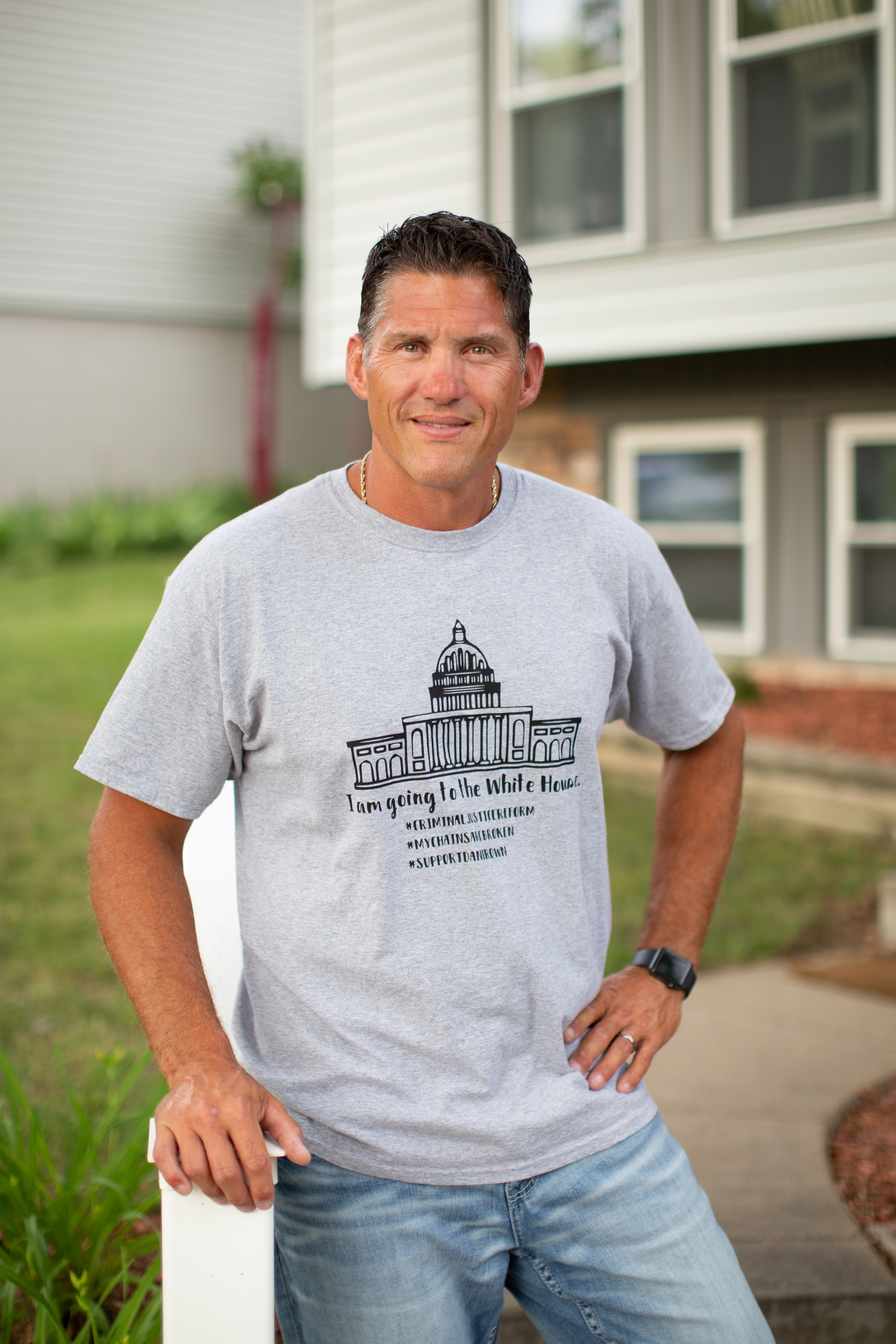
Daniel Lynn Brown at his home in Nebraska
Daniel Lynn Brown served 15 years in federal prison for drug charges. He was released under the First Step Act, which was signed into law by President Trump. Beginning in April 2020, Brown was placed on ten years of federal supervised release.
What did he do when he got home? He didn’t commit any violations. He maintained full-time employment, working as a project manager at a construction company and eventually starting his own business. He purchased two homes. He got married to his wife, Jennifer, and was a devoted father to their four adult children.
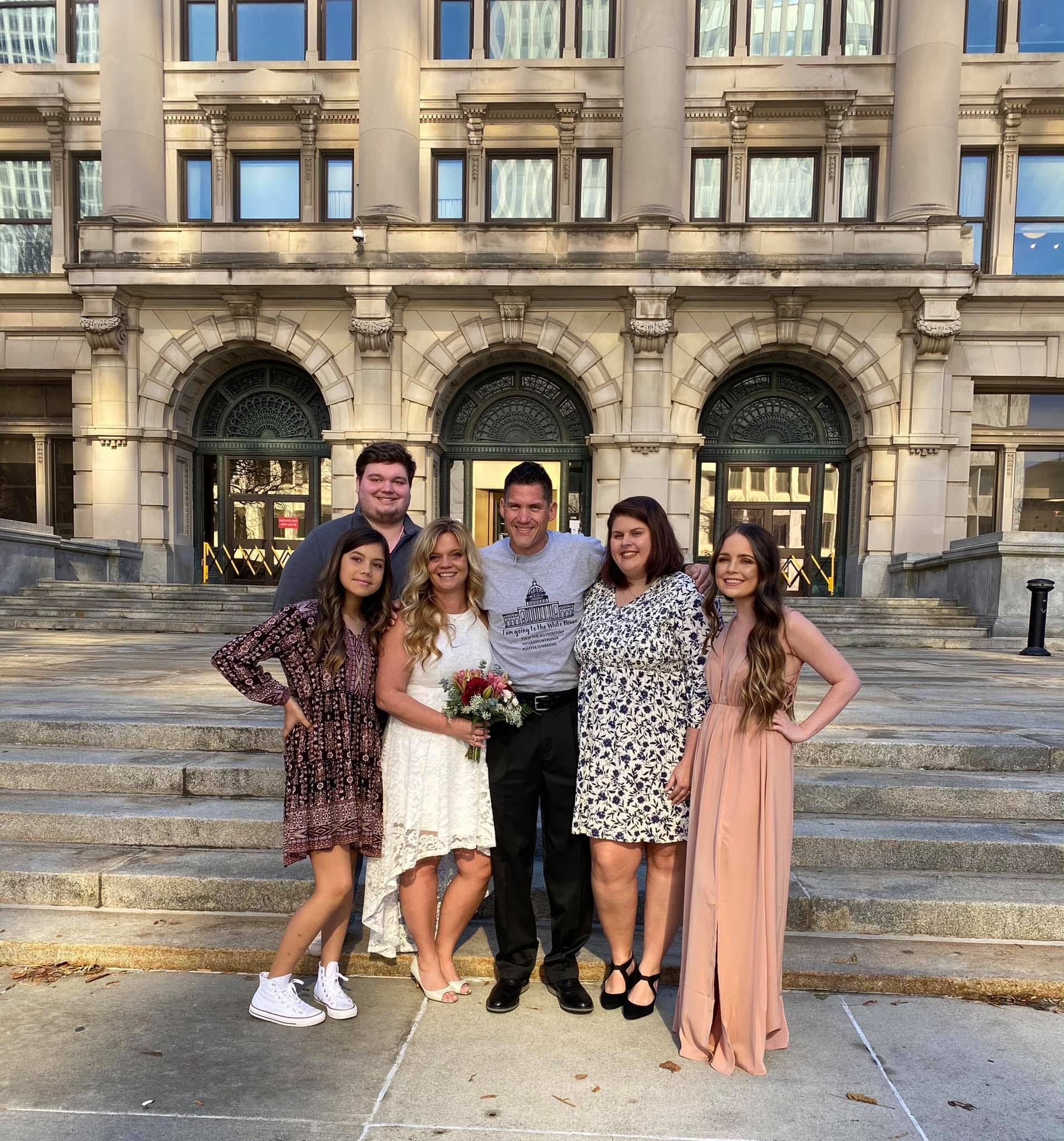
Daniel Lynn Brown, his wife Jennifer, and their four adult children Allison, Caitlin, Hayden, and Faith
He even tried to become a foster parent, spending two years to go through the licensing process and purchasing a five-bedroom home for his growing family. But his supervision officer had other ideas. He reached out to the fostering agency to ensure they knew Daniel was on supervised release, even though no law or regulation prevented someone on supervision from fostering. “He pressed the issue,” Daniel said. He pressed the issue to the point that the fostering agency rescinded the arrangement, removing the three siblings, who had already moved in, from the Browns’ care and placing them with another family. Daniel was devastated but pressed on.
Federal supervision continued to put barriers in his path. Once, his daughter Caitlin called him to say her car was no longer running. She needed help – and fast. The problem? She lived in Denver, Colorado; Brown lived in Nebraska. To cross state lines to help her, he would need to receive permission from his probation officer. “Anytime anything would come up,” Brown says, “I risked a technical violation.” He knew he could be sent back to prison, but a father’s love doesn’t stop at the state line. He went to help Caitlin, anyway – driving five hours to meet her at the Nebraska-Colorado border where he gave her his car so she could make it to work the next day.
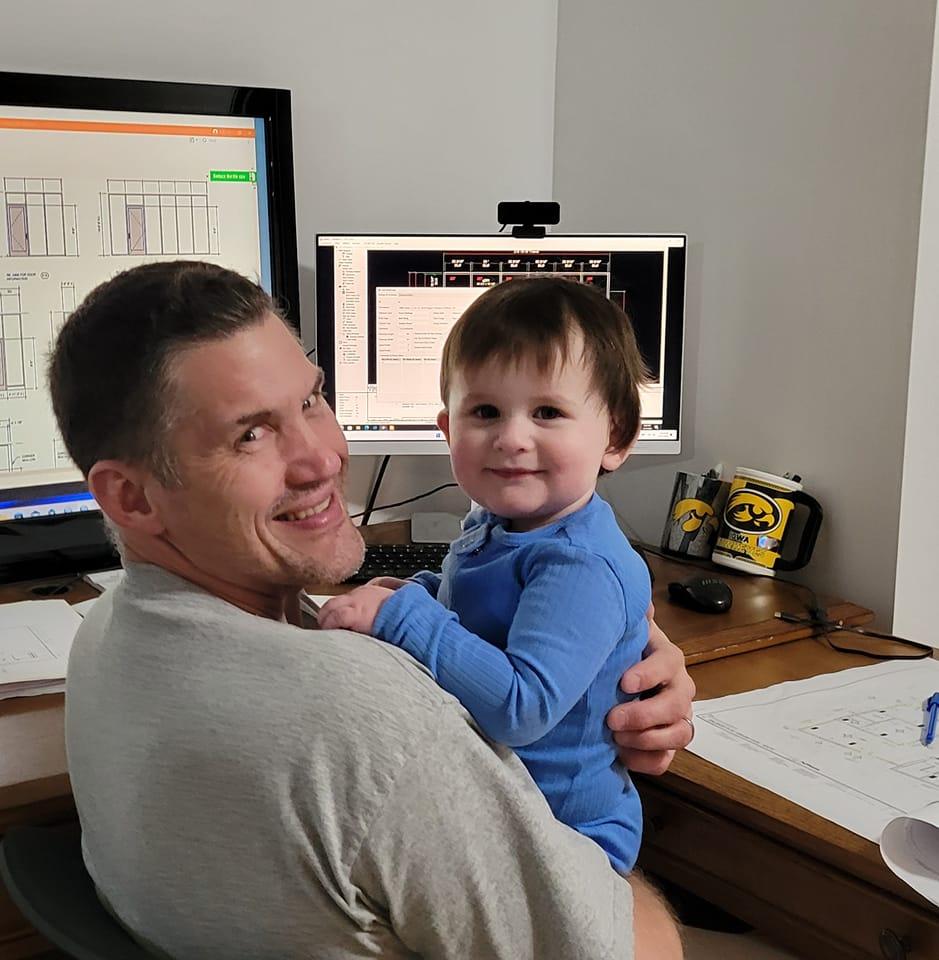
Daniel Lynn Brown and his son Daniel Brown III
Today, Brown is off supervision, having received early termination at the 5-year mark of his supervision term. He and Jennifer added a fifth child to their family, Daniel Brown III. He is treasuring his newfound freedom and celebrating his first Father’s day as a free man. “It’s so real to me now, being free,” he says. “Nobody can ever take me away from my children again.”
He’s also lifting his voice in support of supervision reform like the Safer Supervision Act. “I don’t need to be on supervision for ten years,” he says. “Instead, give extra care to others who need it. Those resources should be redirected to help guys that need more help.”
Noel Barrientos is the father of two girls. The indignities of federal supervised release placed obstacles in his path.
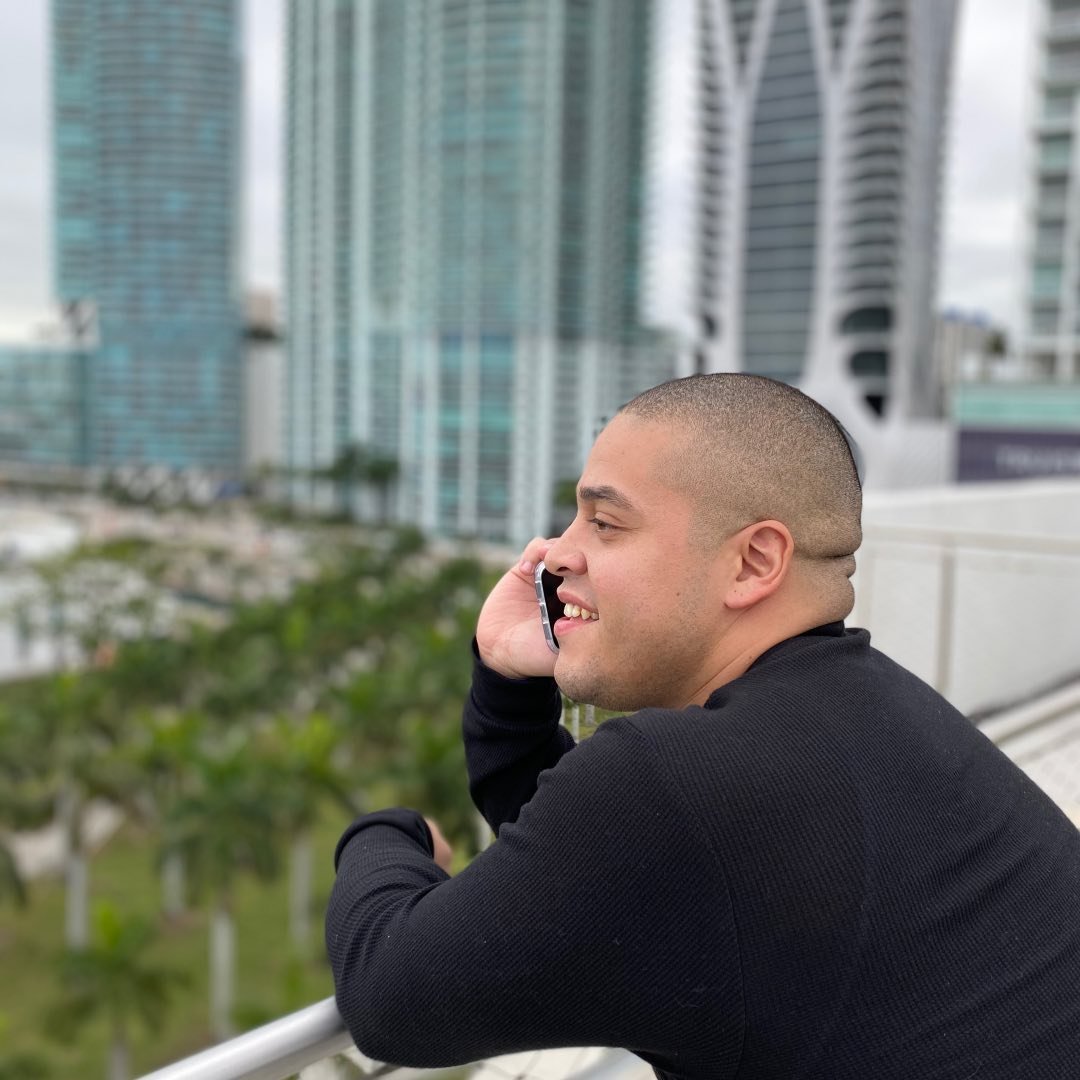
Noel Barrientos at his office in Miami
Noel Barrientos is a proud father of two young girls. When he was charged with a white-collar crime and sentenced to a federal prison term, his main source of pain was knowing he’d be far from them. Upon his release in 2018, he was eager to make up for lost time.
But even though he was out of prison, he wasn’t really free. He spent six months in a halfway house and was sentenced to two years on federal supervised release. Still, his girls were delighted to have him home, even if they couldn’t understand why he couldn’t be around as much as he wanted to be.
For example, while he was still living at the halfway house, he visited his home. But when he got there, he received word that a paperwork mistake had been made. He hadn’t gotten a proper pass, and he had to go back to the halfway house. “The amount of confusion the girls had,” says Barrientos, “it was just hard. I had to pack all my stuff and go back to the halfway house. The girls didn’t understand. I said, ‘Daddy’s going back to the little house.’”
Worse still, his probation officer would often come check on him at work and even family functions – always a humiliating experience. Once, his P.O. even came to Chuck E. Cheese where Barrientos was celebrating his kid’s birthday. The officer arrived in a bulletproof vest and a gun in his holster, and had Barrientos sign a paper in the parking lot, in full view of his family. “All that for what?” Barrientos says. “Like, what was the purpose?”

Noel Barrientos on a family vacation with his wife and two daughters
Today, Barrientos is off federal supervision and is a successful real estate agent in Miami. His girls know they can count on him. No matter how much the federal system held him back, he never stopped striving – because he wanted to be a dad his girls could be proud of. He shares his story regularly in hopes of inspiring others to keep pushing.
Andre Cooper is traveling a long road to freedom. Now, almost off probation, he’s ready to make his young son proud.
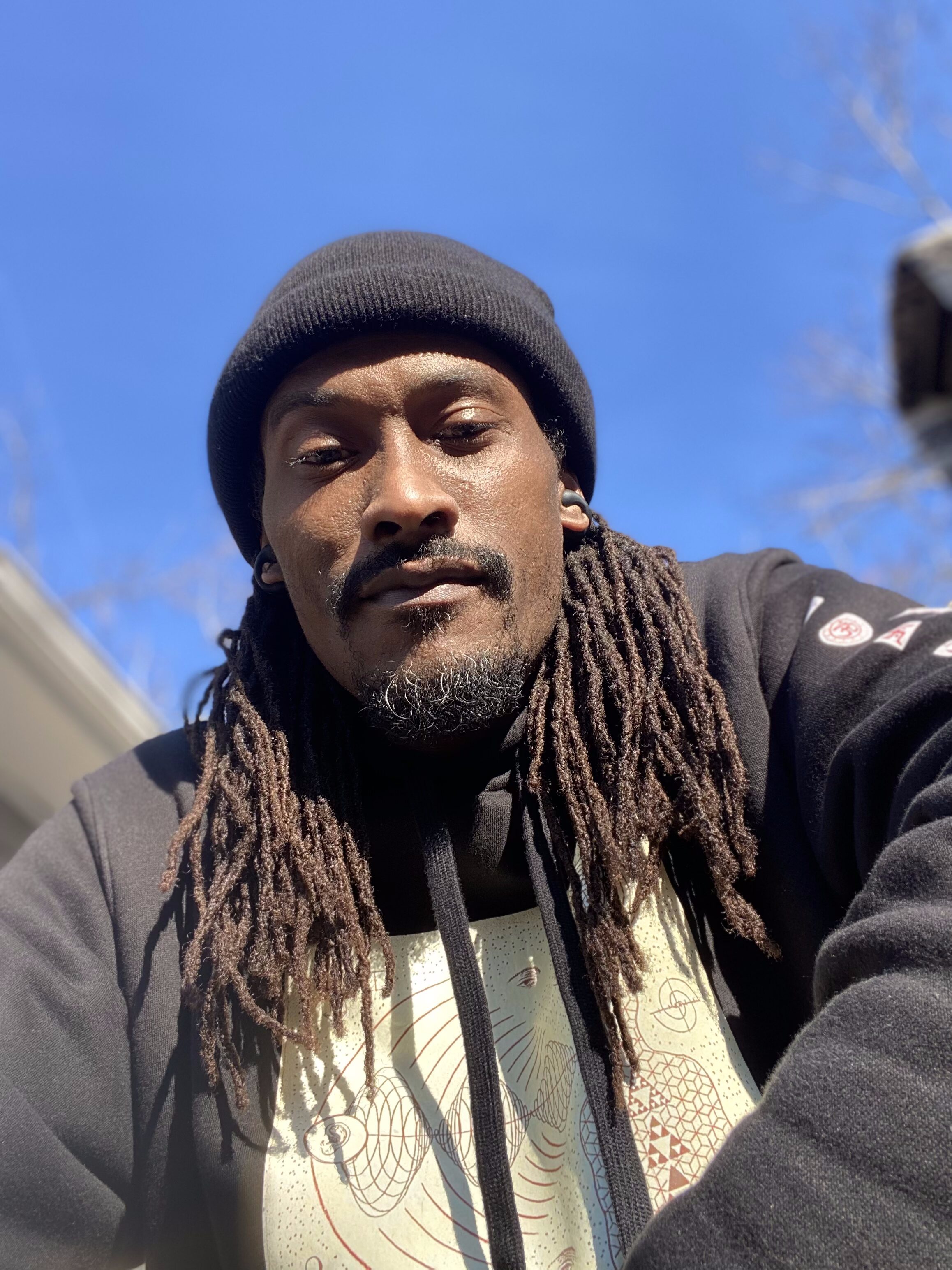
Andre Cooper at his home in Virginia
Andre Cooper’s probation term is about to come to an end. His freedom has been a long time coming – first a prison term, then ten long years in Virginia’s probation system.
When Cooper was still a young man, his home life fell apart. His mother lost custody of his two sisters, and other challenges in the household sent him down the wrong path. “That’s when I turned to the street life,” he says. Trouble followed, and so did a prison term.
But when he got out and was placed on probation, he was ready to turn things around. He worked hard. He developed his skills. He honed his natural gifts, and he helped teach others how to follow their own passions. He even became a staunch advocate for probation reform in Virginia, helping champion incentives legislation HB 2252 and SB 936.
The challenges of life on supervision made it hard for Cooper to imagine building a family of his own. That changed in December of 2023, when he welcomed a son. “It’s an exciting journey being a dad, I’ll tell you that,” he says with a smile.
It’s as though he’s surprised by his good fortune–to have a real chance to break the cycle and raise this child in a world that has a place for him. “I plan to build an empire for this son of mine.”
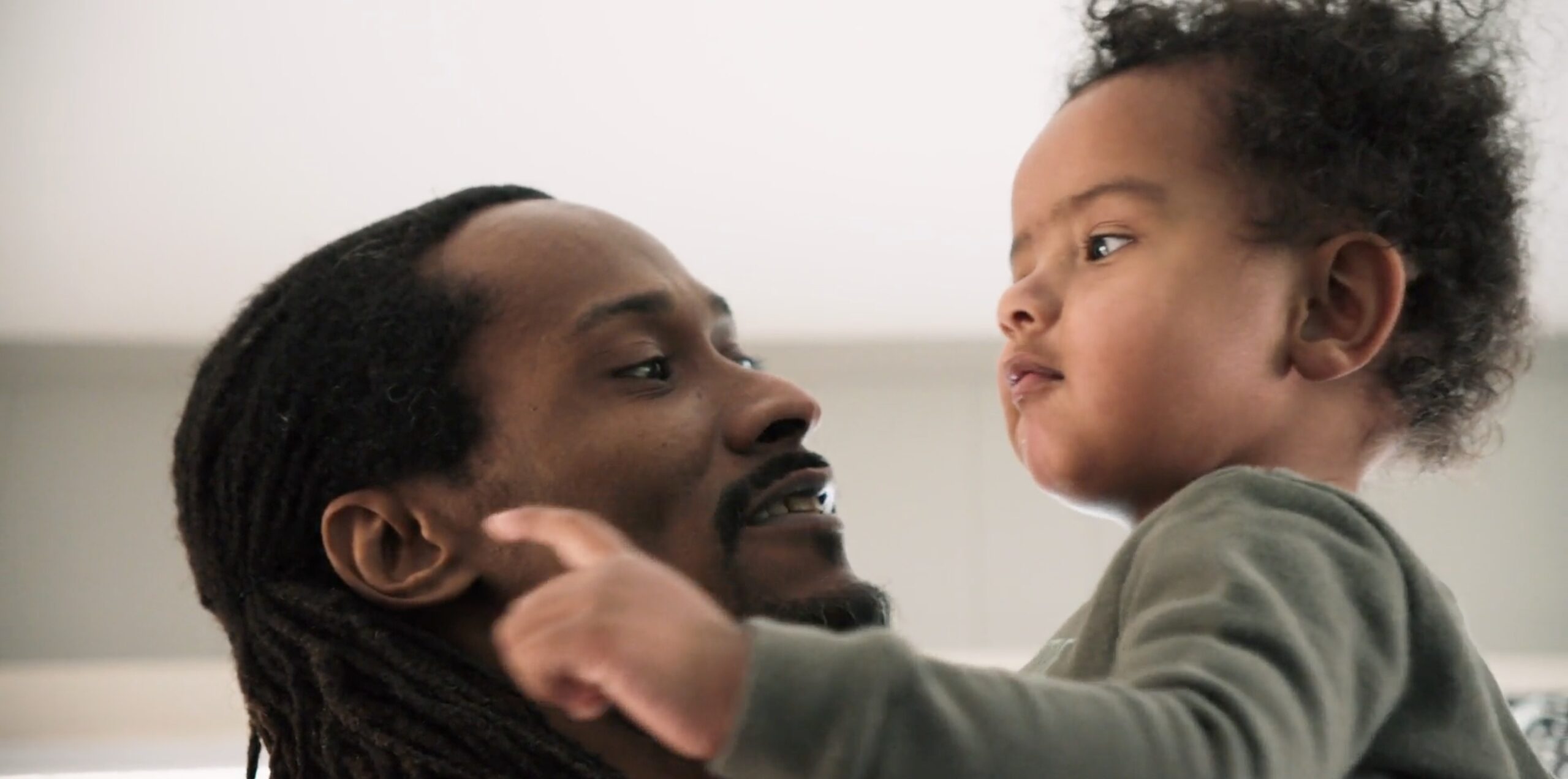
Andre Cooper and his son Assan
Home from prison, Adam Clausen lived with the constant fear of going back. When his son CJ was born, the stakes were higher.

Adam Clausen, his wife Ro, and their son CJ
Adam Clausen was once sentenced 213 years in prison. Today, he is a successful life and fitness coach, and he is building a fund to provide affordable housing for thousands of formerly incarcerated citizens. But his most important title is father.
Upon being released from prison, Clausen was placed on federal supervised release. He had daily check-ins with his probation officer. He took regular drug tests. He lived with the constant anxiety that a single misstep could send him back to prison and undo the life he was building alongside his wife Ro. Despite 15+ years of a clean record and an incredible transformation while incarcerated, Adam found that supervision failed to recognize any of the progress he had made. “My past far outweighed what I had done in prison,” he says.
When his son was born, the stakes got even higher. “It was fragile,” he says. “I felt like I could be ripped back to prison…And once I had a son, that was a huge responsibility.”
Not long after the birth of his son, Clausen applied for early termination of his supervision term, believing the system would reward his progress.The application was denied, and Adam spent the remaining fourteen months of his term under the intense scrutiny of federal supervision. He was a dutiful father, but supervision made it hard for him to do all the things a father wants to do. His ability to travel was limited, and spontaneous weekend trips were out of the question.
Clausen is now off supervision and putting his experience to good use. He’s the director of innovation and social impact at Social Purpose Corrections, a nonprofit dedicated to transforming correctional and reentry culture.
When he was incarcerated, Clausen says, he faced a choice: “Either give up, or focus on earning my second chance by doing something extraordinary.” It’s clear which path he chose.
When Charles “Duke” Tanner got home from prison, he wanted to show up for his son. Federal supervision made that harder.
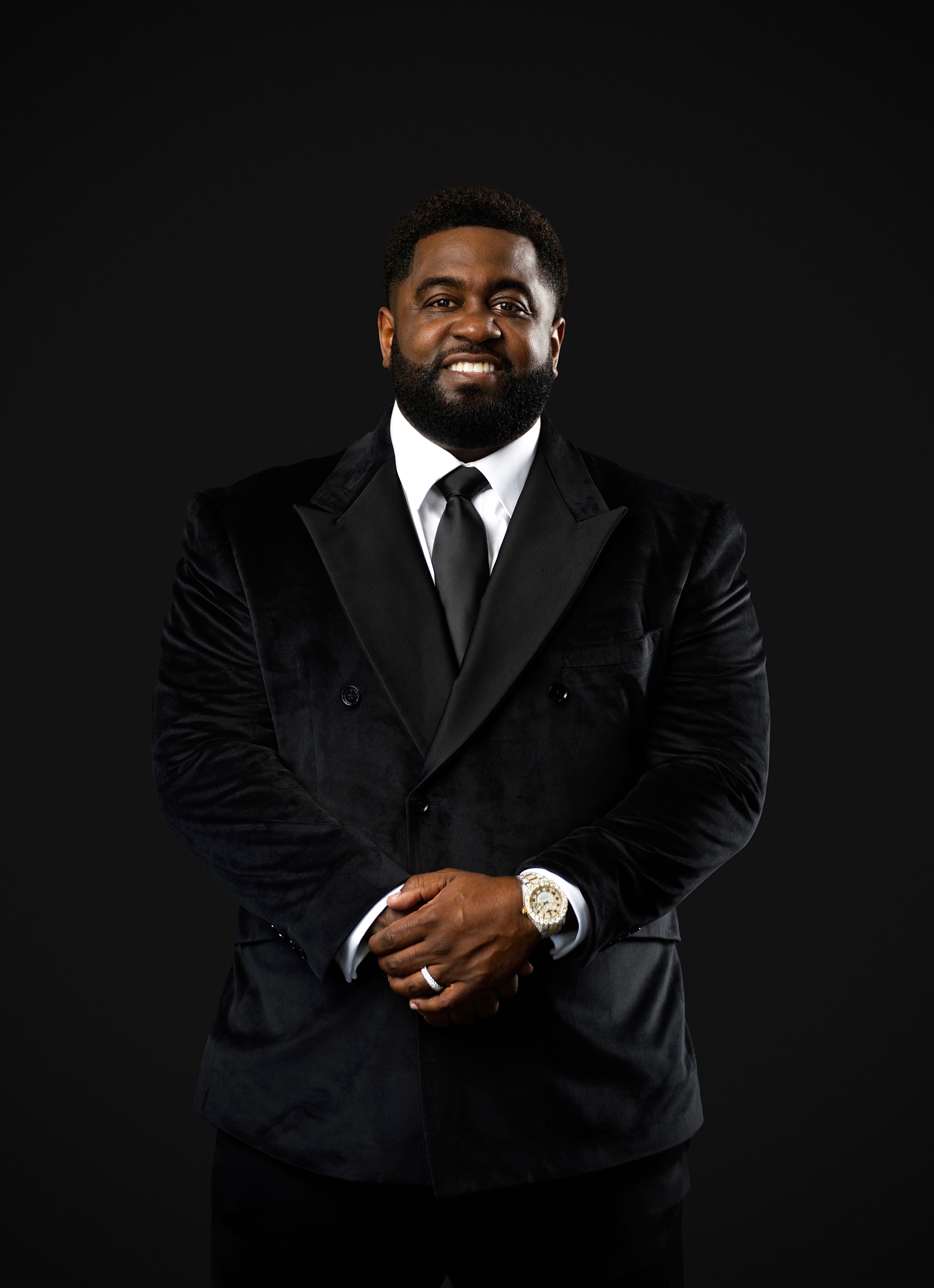
Charles “Duke” Tanner
When, in 2004, Charles “Duke” Tanner received a life sentence – a result of a first-time drug offense – his son was two years old. “That was my everything,” he says. Even though he was behind bars, he was determined to set a positive example. “I tried to learn everything I could inside to teach him on the outside how to be a better man.”
In 2020, Tanner received a commutation from President Trump, and he returned home with a deep desire to show up for his son. But he found he wasn’t fully free to do so. He was placed on 10 years of federal supervised release – a supervision system that was intended to be a bridge back to the community for people exiting federal prison, but too often serves as another kind of punishment and confinement, a set of burdensome rules that can land you right back in prison. For Tanner, federal supervised release had the added burden of making it harder to be the father he wanted to be.
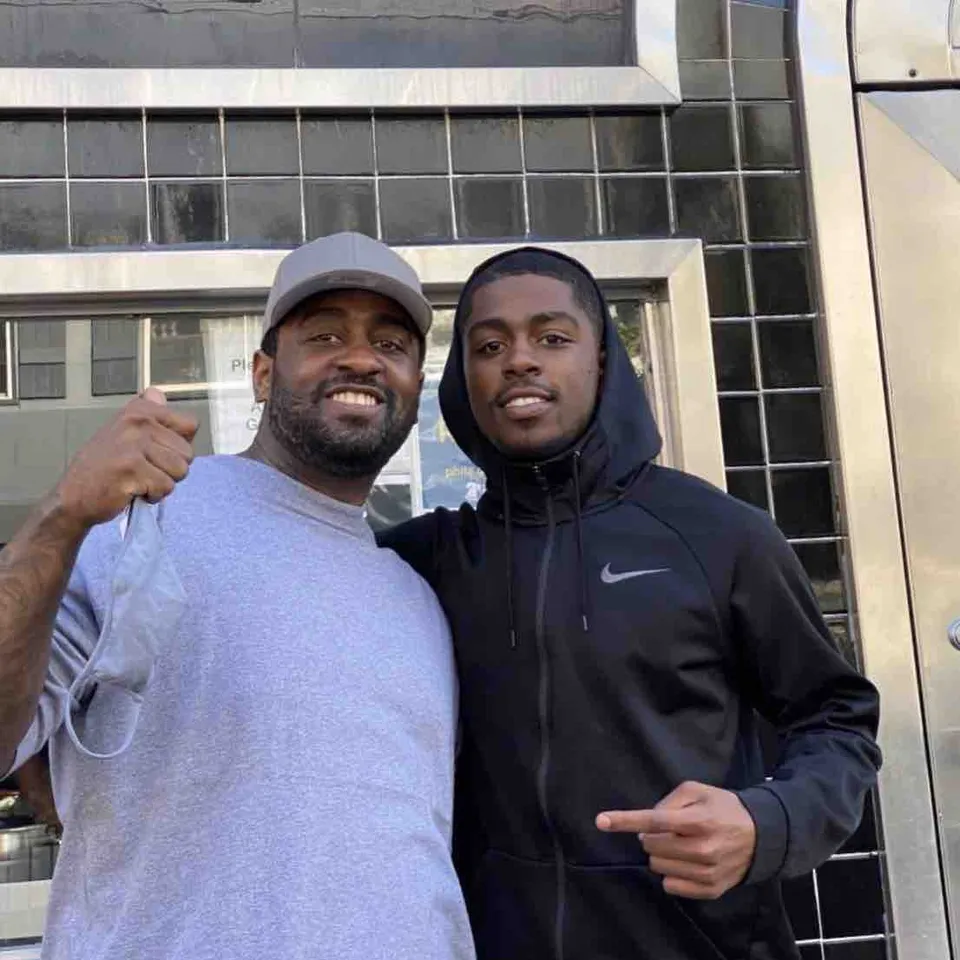
Charles “Duke” Tanner reunites with his son Charles, Jr., after 16 years in prison
His son was enrolled in a Master’s program. But Tanner couldn’t go visit without first seeking permission from his probation officer, a process that could sometimes take up to five days. Time and again, he applied for early termination of his supervision – demonstrating his progress, making a compelling case – only to be denied. Still, his son, Charles Jr., never lost hope. When President Trump officially pardoned Tanner on May 28 of this year, the news was a joyous daybreak after many long nights of struggle.
Today, Tanner is free – free to be a father, and free to use his experience to help others. He is working to rebuild communities through partnerships that reinvigorate public housing and provide resources and support to improve conditions in impoverished neighborhoods. He’s also a fierce advocate for the Safer Supervision Act.
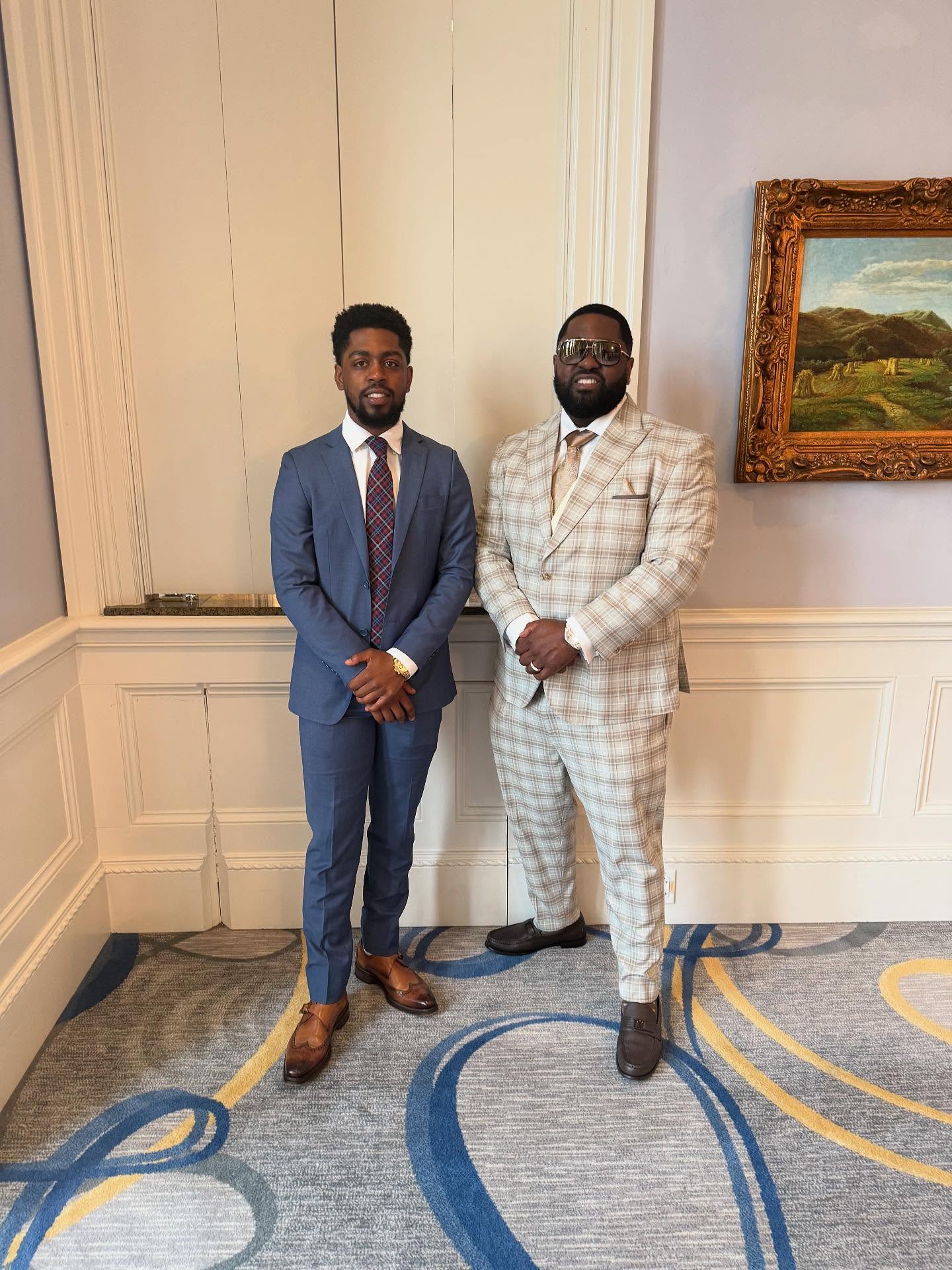
Charles “Duke” Tanner and his son Charles, Jr. at the White House
These stories show the power of a father’s love. It’s time to build a system that sets more of our fathers up for success.
